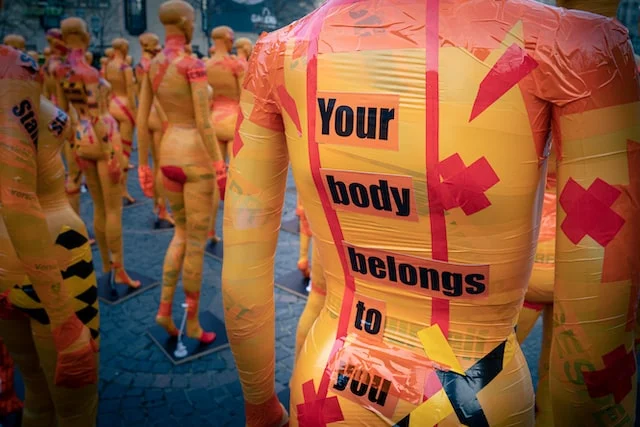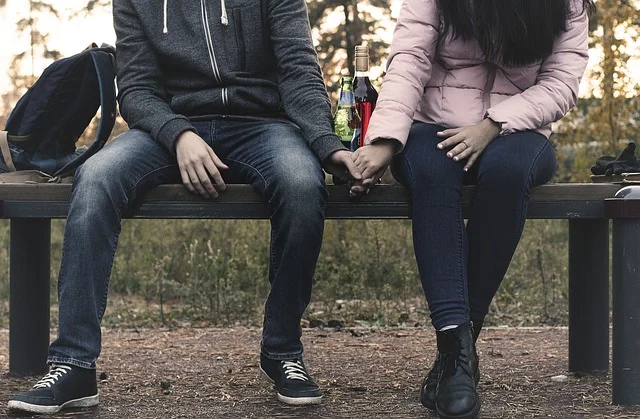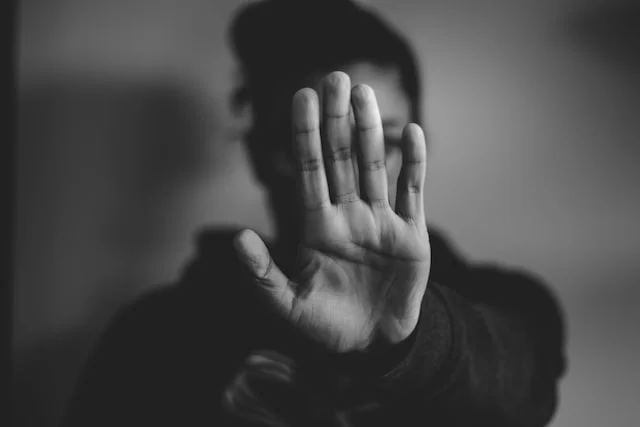Ask A Lawyer: Different Types Of Domestic Violence Charges

Every case turns on its own facts, and if a DV case involves very serious injuries, or a “victim” that remains very angry, or the criminal DV case is being used for leverage in a Family Law matter, what I’m about to say may not apply.
Here’s the truth about Domestic Violence – these cases, properly handled get dismissed. Why? Because the victims don’t want to pursue them, they don’t want to testify, and they don’t want the defendants to be convicted or go to jail. And if they will not testify, as they have a right not to under California Code of Civil Procedure Section 1219, there is no case.
The key here is “properly handled.” You cannot do this on your own. You absolutely need to have an attorney who knows something about DV to assist you. If you can’t afford a lawyer, then use the Public Defender. Under no circumstances should you try to dissuade a witness / victim from testifying or coming to court. What you can do is use the Criminal Protective Order to your advantage. How does that work?
When you go to court the judge will give you a restraining order saying that you are to have no contact with the victim. But the victim will still try to call you, maybe not today, maybe not tomorrow, but they will. And your mission is to say: call my lawyer here’s the number, the judge has forbidden me from talking to you, and hang up. They’re going to call because they want something, love, affection, childcare, money, whatever, and by not talking to them, they then realize after talking to your lawyer that they’ll be better off if the case goes away.
This reality is, in my view, not great for society, but I don’t make the laws, I just know how to use them. Assuming your case gets dismissed, you need to take a serious look at anger issues, relationship issues, drinking issues, or whatever else is in play. I strongly recommend therapy.
Louis J Goodman
According to the National Coalition Against Domestic Violence (NCADV), over 20,000 phone calls are placed to domestic violence hotlines every day.
Domestic violence is any form of physical, psychological, emotional, sexual, or financial abuse that occurs between people in an intimate relationship. It can include behaviors such as threats, coercion, manipulation, put-downs, and intimidation. This violence can occur in any type of relationship regardless of gender identity or sexual preference.
If you’re facing domestic violence charges call The Law Office of Louis J. Goodman for the best legal counsel in your area. An expert in criminal defense and a former Deputy District Attorney and criminal prosecutor, Mr. Goodman draws on 25 years of experience and legal representation.
There Are Many Types of Domestic Violence
Because domestic violence charges may arise from countless circumstances, situations, settings, and struggles, you should always seek legal counsel you can trust. From alleged sexual assaults to psychological abuse, emotional abuse, and controlling behavior, domestic violence and abuse take many forms.
Although a seasoned attorney can help you build a robust defense against domestic abuse charges, you should at least have a basic understanding yourself. After all, every domestic abuse case is unique.
Let’s cover everything you need to know about potential domestic abuse. Your legal rights and future life may depend on it.
What Exactly Is Domestic Violence?
Although the legal definition of such violence differs by jurisdiction, it is generally a pattern of abusive actions within an intimate relationship. Through domestic violence, one partner attempts to control and dominate the other partner. Legally, the term may refer to any abusive relationship leading to physical harm, emotional abuse, abuse of economic resources, such as financial abuse, and/or sexual abuse.
In the U.S., the Violence Against Women Act (VAWA) defines domestic violence as any pattern of abusive behavior in which one partner seeks to gain or sustain power and control over the other partner. This includes stalking and harassment as well.
The U.S. Legal Definition of “Domestic Violence”
According to Title 42 of the U.S. Code, domestic violence includes acts that are:
“Committed by a current or former spouse of the victim, by a person with whom the victim shares a child in common, by a person who is cohabitating with or has cohabitated with the victim as a spouse, by a person similarly situated to a spouse of the victim under the domestic or family violence laws of the jurisdiction receiving grant monies, or by any other person against an adult or youth victim who is protected from that person’s acts under the domestic or family violence laws of the jurisdiction.”
These controlling behaviors do not merely refer to actual violence or corporeal abuse. They may also manifest as controlling or manipulating one’s financial resources, damaging self-esteem, dominating sexual activity, verbal harassment, and other forms of abusive behaviors that endanger healthy relationships.
Because this violence can encompass many behaviors and dynamics, charges and allegations can vary significantly. If you’re being accused of domestic abuse, always contact an attorney experienced in domestic abuse cases.
What Are the Most Common Types of Domestic Violence?
Abusive relationships do not discriminate. Domestic violence can occur between all types of intimate partners, other family members, housemates, and more. From emotionally damaging same-sex relationships to physically violent heterosexual relationships, victims of domestic violence are found across the spectrum.
The following types of domestic violence occur most frequently, but there are always other types. In many cases, types will overlap, as intimate relationships can be very complex, nuanced, and layered.
Physical Violence and Physical Abuse
This may be the most widely recognized form of domestic violence. As its name suggests, physical violence refers to behaviors that harm or are intended to cause bodily harm. In these relationships, an abusive partner may hit, slap, punch, choke, kick, or use inanimate objects against their intimate partner. Physical assaults in these relationships typically occur when one spouse attacks another.
This violent behavior uses physical force that may cause physical injury and even put the victim’s life in immediate danger. Physical abuse is often the most blatant because it leads to injuries, damages, and medical care.
Emotional Abuse and Distress
Emotional distress often arises from behaviors used to control and manipulate a partner. These behaviors may seek to maintain power, gain control, and keep a victim socially isolated. Because emotional abuse can sometimes be hard to define, it may go underreported. Emotional abuse impacts feelings and emotions through verbal abuse, such as slurs and name-calling, in addition to intimidation, alienation, and isolation.

An example may be refusing sex, refusing affection, or refusing attention in general. If you’ve been accused of emotional abuse, it’s best to consult a seasoned domestic violence lawyer.
Sexual Assault and Abuse
This form of sexual violence refers to non-consensual sexual activity. In other words, it is an activity that is sexual and forced upon the victim. Sexual abuse may include unwanted sexual advances, physical touching, molesting, and rape. Sexual contact does not necessarily have to be ‘violent’ to be considered assault. Even sexual coercion through threats or demands may constitute assault.
Marital rape, child abuse, forced sex, and sexual abuse are all interrelated within this control mechanism of violent behaviors.
Economic or Financial Abuse
Although many people may not consider economic abuse to be a form of ‘intimate violence,’ financial abuse can and does take a significant toll. Through economic abuse, the abusive partner controls the other partner’s finances, restricting and limiting victim access as they see fit. This manipulation and control may also hinge on certain desired behaviors.
For instance, the abusive partner may only allow money spent on certain products and services, or only allow such expenditures when the abused partner has met certain demands.
Psychological Abuse
Similar to emotional abuse, psychological abuse may cause emotional and mental instability in an intimate partner. In a psychologically abusive relationship, the abusive partner will try to disrupt the victim’s mental and emotional well-being through tactics such as manipulation, coercive control, and denial of experience. An abusive partner’s behavior may also contribute to the deprivation of mental, emotional, and physical needs.
Whether it’s forced sex, physical abuse, silent treatment, insults, family violence, or other forms of psychological violence, domestic violence can take countless forms. If one intimate partner seeks to control or dominate another partner, such violence may arise.
The Main Causes of Domestic Violence
Although domestic violence is a complex and nuanced issue, there are certain commonalities. Domestic violence often stems from a combination of mental, physical, and emotional risk factors. Abusive partners and abusive relationships are inextricably linked.
While the following list is not comprehensive, it may help you to identify potential scenarios in your own life or in the life of someone you love, where domestic violence might be present. It is also important to note that both females and males can be perpetrators or victims of domestic violence. Some common causes of this violence include:
Observed Behaviors – Oftentimes, abusive partners exhibit learned behavior from their upbringings. They may have been in dysfunctional households themselves where domestic violence was normalized. This, in turn, may cause individuals to grow up to think it’s acceptable.
Addiction and Dependence – Substance abuse and addiction can complicate any relationship, especially when other risk factors are present. Through alcohol abuse or drug use, an individual may become aggressive, irrational, and violent. This can lead to physical assault, emotional abuse, and other domestic violence types.
Mental Illness – Mental health problems are often at the crux of domestic violence. A family member may be suffering from anxiety or depression. Perhaps, a spouse has bipolar disorder or other personality disorders. If improperly treated or managed, these mental health issues can lead to unpredictable and abusive actions.
Cultural Differences – All cultures and strata of society are different. In some cultures, gender roles are vastly dissimilar, leading to disparities, inequities, and inequalities. For example, some cultures may condone violence against women, or silence and marginalize reports of household violence. As a result, many victims may go unnoticed.
Socioeconomic Variables – Life is hard enough, but when you inject economic and social difficulties, it can become exceedingly difficult. Socioeconomic stressors such as poverty, financial duress, and unemployment can create an environment of stress, aggression, and erratic behavior.
Power and Dominance – Oftentimes, an abusive spouse may exert power and control over a physically weaker partner. Many battered women report being abused, controlled, and dominated by men who use male dominant behaviors to maintain control through physical superiority. Many abusive partners have low self-esteem and crave this dominance.
Overall, there are many reasons violent domestic relationships develop. Whether it’s a neglected family member, a battered woman or man, a molested child, or some other victim of abuse, the faces of household violence are varied and numerous. Although the aforementioned variables may explain why domestic abuse arises, other factors are certainly in play.
If you have any questions about allegations or charges of such violence, witness domestic violence, or want to understand how the legal system addresses such violence, consult a lawyer skilled in litigating these cases.

FAQs on Domestic Violence
Who is most affected by domestic violence?
Domestic violence does not discriminate and can affect anyone, despite age, gender, sexual orientation, race, ethnicity, or other demographics. Nonetheless, women are statistically most likely to be victims. The World Health Organization (WHO) finds that roughly 1 in 3 women across the world have been physically and/or sexually abused in their lifetime.
How can I access support services related to domestic violence?
You should always speak with a friend, family member, or confidante first. If you’d like to reach services specially designated for domestic issues, you can call a hotline. There are both national and local violence hotlines, 24/7 and confidential. Numerous organizations also offer emergency shelter, therapy, legal aid, and assistance. You can also contact law enforcement and medical professionals if you are endangered or injured.
What are the four main types of violence?
According to the World Health Organization (WHO), the four main types of violence are sexual violence, physical abuse, psychological/emotional violence, and neglect or abandonment. If you are involved in such violence, don’t hesitate to seek support.
What are the three phases in the domestic violence cycle?
These three phases are tension-building, acute violence, and reconciliation. In tension-building, pressure and conflict escalate as the victim tries to avoid violence and the abuser intensifies. In the violence phase, the abuser commits an emotionally or physically violent act, and in the reconciliation phase, both the abuser and the victim try to make amends. Unfortunately, without intervention, the cycle usually restarts.
How can I get help if I became a victim of domestic violence?
As previously mentioned, you can call violence hotlines, contact related organizations, reach out to healthcare professionals, tell law enforcement, or seek legal counsel. If you’ve been charged with, or accused of, such violence, you need expert legal guidance to protect your rights in court! Consult The Law Office of Louis J. Goodman today.
Request A Free Case Evaluation
Fields marked with an * are required
"*" indicates required fields



